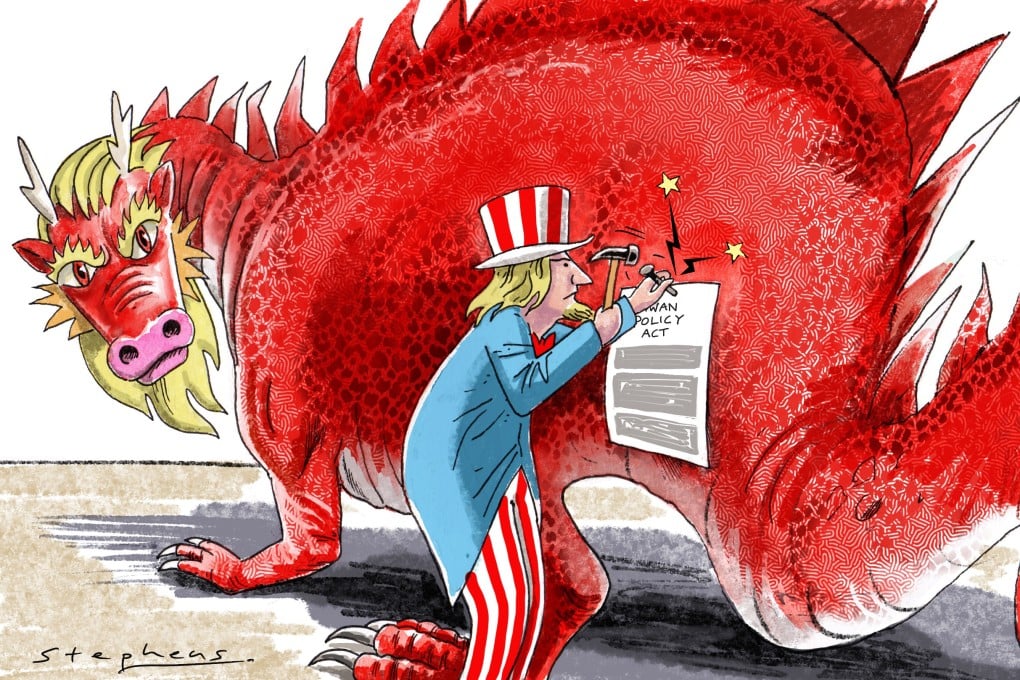Advertisement
Opinion | How will Beijing react to the US pushing its buttons with the Taiwan Policy Act?
- Washington’s plan to upgrade ties with Taiwan, much like Nancy Pelosi’s trip to the island, makes it clear there will be no letup on China
- While Beijing is likely to bide its time and continue using salami slicing tactics, if the US tries to ‘Ukrainise’ Taiwan, Washington cannot expect to sit out the ensuing war
Reading Time:4 minutes
Why you can trust SCMP
20

The current state of the conflict in Ukraine, where Ukrainians are believed to have given Russian troops quite a licking, has strengthened the opinion in Washington that while Russia may be its most pressing problem, China – as the only country with both the intent and all-round power to threaten US supremacy – remains its biggest threat in the long term.
Advertisement
That is why US House Speaker Nancy Pelosi’s melodramatic trip to Taiwan materialised in early August, despite repeated warnings from Beijing, and US President Joe Biden’s personal disapproval. The signal from the US was unequivocal: there will be no letup on China, and Taiwan is the best lever to pull, both symbolically and materially.
Moreover, the trip showed that the US remains unreceptive to the notion that its diplomacy requires some degree of realist finesse. Or, perhaps more than that, it underscored a belief that America, an empire of truly global reach, is capable of creating its own reality that others must adapt to, as Zbigniew Brzezinski, the late US national security adviser, once worriedly observed.
Either way, we now see another drama unfolding, potentially much more disruptive to the Sino-US relationship, and which will punch Beijing in the same spot – yes, I’m talking about Taiwan Policy Act, which passed the Senate Foreign Relations Committee last week by a big margin.
In a nutshell, the legislation redefines the US’ position towards Taiwan: it accords it quasi-diplomatic status by rebranding Taipei as Taiwan, treats it as a Nato-like ally, and makes military aid fully open-ended.

If passed by the US Congress and signed off by the White House, the act will be the finishing touch to the hollowing-out of the US’ one-China policy in the eyes of Beijing, and Washington’s official insistence that this is not the case will seem like nothing more than lip service.

Advertisement
